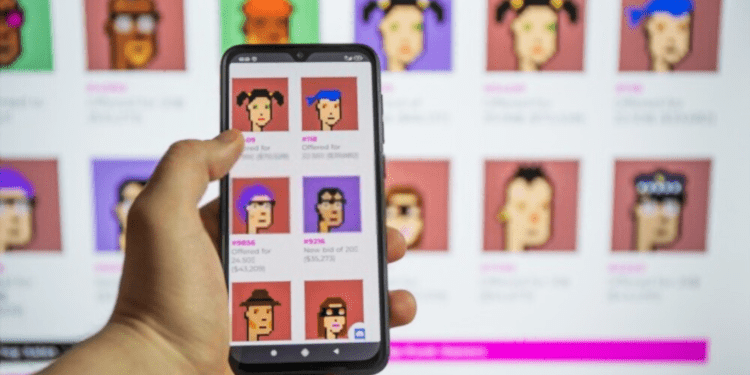The popularity of NFTs for art, music, and gaming exploded over the last year. The project’s utility is the driving success factor for any nonfungible token (NFT). Many industries show growth potential for utilizing NFT smart contracts in supply chain logistics, healthcare, real estate, and more.
NFT Utility
The inherent value of any NFT comes from the key benefits provided to the community of holders. If blockchain is attractive as a trustless ledger, NFTs are valuable for providing undeniable proof of ownership and provenance.
Some communities, most notably members of the Bored Ape Yacht Club (BAYC), have leveraged their NFT ownership to expand their brand. For example, four members of the BAYC community partnered with M&M to release a limited-edition candy. Another holder sold a bottle of champagne with a photo of his ape on the side for $2.5 million.
Community-driven ownership is the essence of Web3, and the BAYC examples above provide insight into the impact this model can have on holders. This particular community is giving fans of their art a material benefit as owners and participants in the brand rather than simply being observers.
User Demands & Market Shifts
Reuters reported that NFT sales plunged last quarter, down 60% from the previous. Analysts have expressed skepticism about the value of collectibles and appear more interested in NFTs for their utility in streamlining monetary transactions in the metaverse.
Current conditions and projections indicate that gimmicky projects with little or no value will dry up, while projects with genuine utility will succeed over the long term. These “winners” will become the examples recognized by the general public who associate owning an NFT with tangible value.
Dual World Utility
NFT ticketing is one of the most active use cases for events in the real world and the metaverse. The market for NFT tickets is estimated to reach $68 billion by 2025.
Strong community bonds and digital wallets enhance the value of tickets as collectible items. NFT tickets can provide artists, event organizers, and other stakeholders with ongoing royalties, incentivizing a stronger bond within the community.
All tickets are nonfungible, yet only tickets issued and transacted on a blockchain cannot be stolen or forged. Smart contracts can also allow NFT tickets to have a set price, limiting secondary market price hikes by brokers.
In other words, blockchain-based ticketing prevents scalping and creates a fair secondary market. Blockchain technology and NFTs make it easier to determine when and where a ticket was purchased and to monitor transactions.
Metaverse Real Estate
Virtual real estate is estimated to have a compound annual growth rate of 31% for the next five years. Individuals may purchase digital plots of land on metaverse platforms as NFTs. In April, the creators of BAYC, Yuga Labs, sold 55,000 parcels of metaverse land in The Otherside metaverse for over $300 million.
People can build, work, socialize, play games, and advertise their enterprises on NFT land. The worth of the plot depends on several things, like the value of the project it will play host to and its proximity to other valuable lands in a particular metaverse.
Different metaverses offer different values and characteristics for their digital real estate. Decentraland is one digital universe that is essentially a digital extension of the real world. Large companies like J.P. Morgan have opened a virtual lounge in Decentraland. Many concerts and events take place in Decentraland as well. Landowners can earn revenue from hosting events, selling advertising space, and making their land a popular user destination.
Other digital worlds are essentially games. The Otherside metaverse is an MMORPG (Massive Multiplayer Online-Role-Playing Game) where 10,000 players can simultaneously interact and chat. Each plot of land in this particular metaverse has characteristics and rarity associated with the resources, quests, and other artifacts available in the online game.
Conclusion
Utility promotes ownership over short-term flips and disincentivizes individuals who think NFTs are a path to get rich quickly. Creators who provide utility to buyers of their projects are the most likely to succeed in the long term. Adoption of NFTs by the general public will likely occur naturally as the wide variety of NFT use cases continues to grow and expand.














